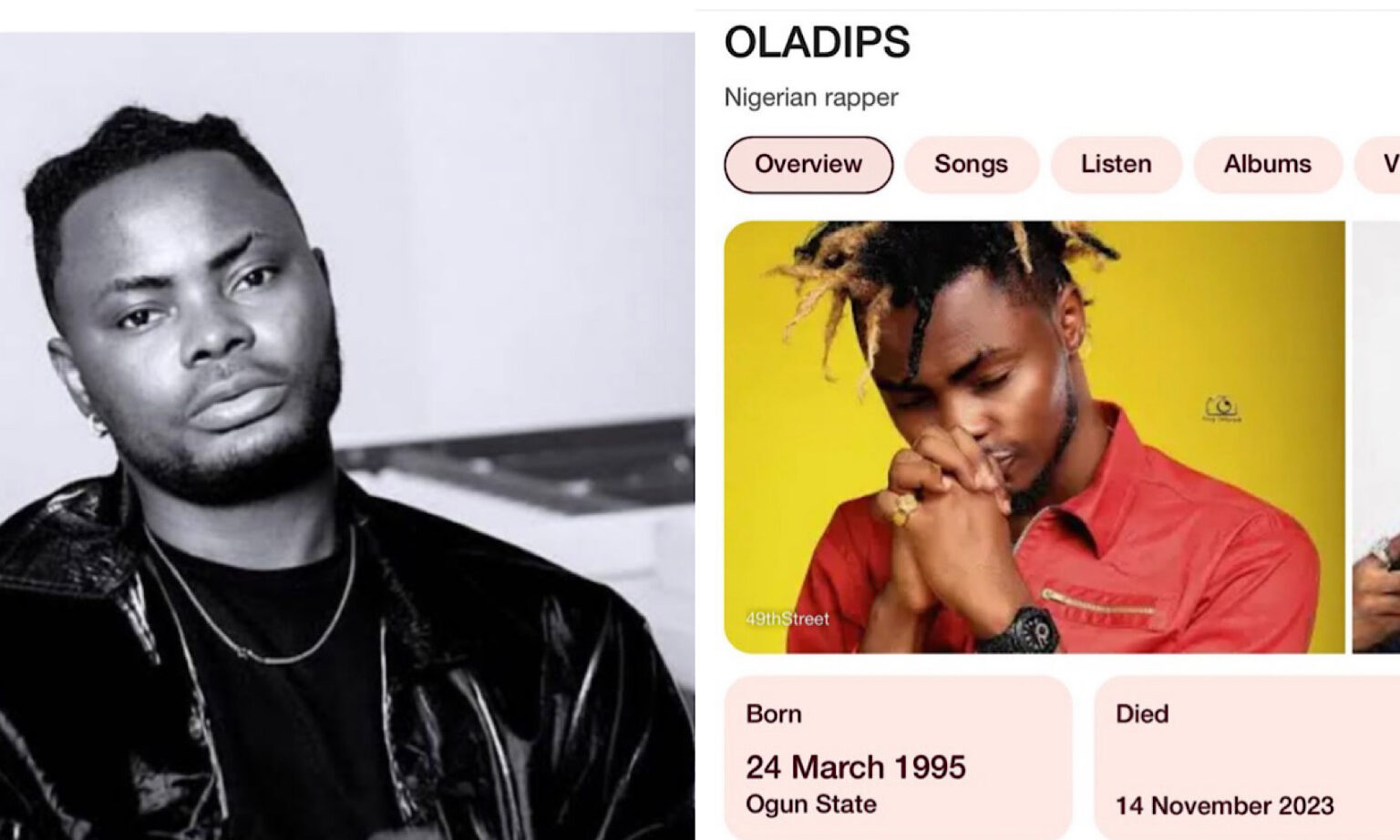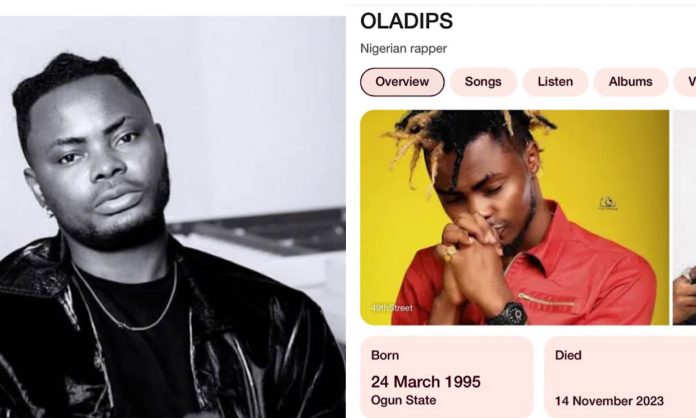In a bizarre twist of events, rapper Oladips, previously reported dead, has now confirmed he is very much alive, leading to a wave of reactions and criticisms, especially directed at Google for not updating his status.
About a week ago, news broke from Oladips’ close friends and relatives announcing his sudden death. Reports detailed that he had slumped and was rushed to the hospital, with a video circulating showing him being carried to a car. However, within a couple of days, a contrasting narrative emerged. His friends began hinting that Oladips was, in fact, alive, raising suspicions that the death announcement was a publicity stunt to promote his newly released album.
This theory gained traction when, following the release of his album, his music streaming numbers reportedly soared. Then, in a dramatic turn, Oladips himself appeared on Instagram, first in a story and then in a live video, confirming his well-being and promising to explain his actions.
Netizens have expressed their discontent with Oladips’ actions, accusing him of exaggerating and exploiting the situation for fame and album promotion. Many feel betrayed and assert that such a stunt could damage his credibility.

Adding to the controversy is Google’s response, or lack thereof. Initially, Google updated Oladips’ status to ‘deceased’ following the initial reports. However, even after his revelation of being alive, Google has not updated this information. This has sparked further discussions among internet users. One commenter, RealSylvie, humorously suggested that Oladips needs to ‘appease Google’ for an update. Others, like Precious27 and Ugwuchi, commented on the need for more public engagement by Oladips for recognition, while another, known as Attitude, humorously noted that Google might be sticking to his original ‘death’ claim.
Amidst the humor, there’s a prevailing sense of seriousness over the implications of Oladips’ actions. The emotional toll on his fans and the broader public, misled by false information, has been significant. This incident raises questions about the ethics of publicity stunts and their impact on public trust.

